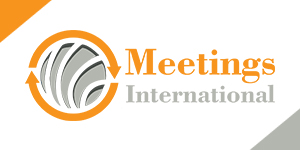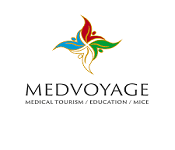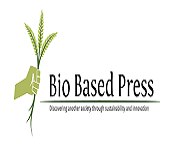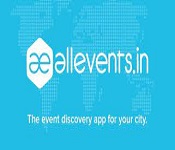We warmly welcome each and every social researchers to attend our “2nd Global Summit on Sustainable Development and Society” to be held on July 18-19, 2022 in the beautiful city Miami, USA with the theme of “Promoting the Sustainable Development Goals.” The conference provides the global coliseum to international scholars and researchers to voice their research findings to the world and also academicians, scientists, and business professionals, general public to share information and ideas about how to achieve the sustainable goals and minimize the problems of sustainable development. The summit covers all the 17 goals of sustainable development like poverty, hunger, health, sanitation, education, innovation, gender equality, climate change, etc.
Miami, which is rich in history, cultures, and science, will be a great option for participants to explore the city as well as its society. We welcome all to be a part of the Sustainable Society 2022.
Session 1: Depletion of Poverty
At a certain period of time, the number of people living in poverty decreased by nearly half, from 48 to 26 percent. As the food prices are back on the rise and have caused this trend to regress. Poverty occurs due to lack of resources or lack of wanted needs for the people. At present as there are sufficient resources available, there should be an efficient way to use them to recover the poverty. Poverty doesn’t only occur due to finance problems it includes lack of food, education, health issues, inequality, child labor, and lack of living.
Session 2: Zero Famine and Food Security
Now-a-days the stage of hunger has been improving through different practices like production increase, by facilitating income generating activities, learning about climatic factors etc. The ZHC was launched by UN. The Zero Hunger vision shows five elements from and within the SDGs, which are taken together, can end hunger, eliminate all forms of malnutrition, and build inclusive and sustainable food systems. The five elements are All Food Systems are Sustainable, An End to Rural Poverty, and Adapt All Food Systems to Eliminate Loss or Waste of Food, Adapt All Food Systems to Eliminate Waste or loss of Food, An End to Malnutrition.
Session 3: Good Health and Well-Being
Support the research and development of vaccines and medicines for the communicable and non-communicable diseases that primarily affect developing countries, provide access to affordable essential medicines and vaccines, in accordance with the Doha Declaration on the TRIPS Agreement and Public Health, which affirms the right of developing countries to use to the full the provisions in the Agreement on Trade-Related Aspects of Intellectual Property Rights regarding flexibilities to protect public health, and, in particular, provide access to medicines for all.
Session 4: Hygiene Water and Sanitation
Clean Water: people should get pure water for drinking is the goal. Water plays a essential role in a human life. Many diseases get contaminated through water and will be infected to the people, should take care of the surroundings, so that they won’t get infected because of contaminated water. Many diseases get contaminated through water and will be infected to the people.
Sanitation: the first thing comes under this topic is open defecation which is very unhygienic and unhealthier should be stopped immediately. The waste or the garbage of the house or the surroundings should be cleaned.
Session 5: Gender Studies
It aims for women empowerment and depletion of child labor which helps economic growth and development of the nation. Gender equalities are necessary for a peaceful, prosperous and sustainable world. Women also have the equal rights compared to men. Women discrimination or violence should be totally diminished. Women are no less –than a man in the society. There should an awareness among the people for not to harm the children or women.
Session 6: Affordable and Clean Energy
Power cables from the grid have reached a transformer in each village. The energies which we are using now have to be mounded into safest energy usage by using renewable energies. Using the renewable energy is safe and sustainable and the example can be like wind energy, solar energy etc. We shouldn’t pollute or disturb the surroundings.
Session7: Biofuels and Alternative Energy
Bioenergy is energy derived from biofuels. Biofuels are fuels produced directly or indirectly from organic material – biomass – including plant materials and animal waste. Overall, bioenergy covers approximately 10% of the total world energy demand. Traditional unprocessed biomass such as fuel-wood, charcoal and animal dung accounts for most of this and represents the main source of energy for a large number of people in developing countries who use it mainly for cooking and heating. A distinction is made between primary and secondary biofuels. In the case of primary biofuels, such as fuel wood, wood chips and pellets, organic materials are used in an unprocessed form, primarily for heating, cooking or electricity production. Bioenergy is mainly used in homes (80%), to a lesser extent in industry (18%), while liquid biofuels for transport still play a limited role (2%).
Session 8: Partnership For The Goals
Enhance the Global Partnership for Sustainable Development, complemented by multi-stakeholder partnerships that mobilize and share knowledge, expertise, technology and financial resources, to support the achievement of the Sustainable Development Goals in all countries, in particular developing countries.
Session 9: Eco-Growth
There should be enormous progress of higher economic productivity through technological upgrading and innovation, diversification including through a focus on high-value added and labor-intensive sectors. Like there should be more job opportunities and entrepreneurship, creative and innovative technologies.
Session 10: Innovation And Infrastructure
Enhance scientific research, upgrade the technological capabilities of industrial sectors in all countries, in particular developing countries, including, by 2030, encouraging innovation and substantially increasing the number of research and development workers per 1 million people and public and private research and development spending.
Session 11: Responsible Consumption and Production
Rationalize inefficient fossil-fuel subsidies that encourage wasteful consumption by removing market distortions, in accordance with national circumstances, including by restructuring taxation and phasing out those harmful subsidies, where they exist, to reflect their environmental impacts, taking fully into account the specific needs and conditions of developing countries and minimizing the possible adverse impacts on their development in a manner that protects the poor and the affected communities.
Session 12: Sustainable Cities And Communities
By 2030, provide access to safe, affordable, accessible and sustainable transport systems for all, improving road safety, notably by expanding public transport, with special attention to the needs of those in vulnerable situations, women, and children, persons with disabilities and older persons.
Session 13: Climate Change and Climatology
Climate change offers a certainly one of the type degrees to analysts and researcher to investigate the advanced and maximum recent research upgrades inside the field of climate exchange changes additionally called an earth-extensive temperature to enhance, alludes to the ascent in everyday floor temperatures on the earth. Climatology, the research of climate and its connection to plant and creature lifestyles, is critical in many fields, including agribusiness, flight, prescription, organic technology, zoology, topography, and geology. Changes in climate impact, as an instance, the plant and creature lifestyles of a given range. Climatology, the take a look at of climate and its connection to plant and creature life, is crucial in many fields, which include agribusiness, flying, prescription, plant technological know-how, zoology, topography, and geology. Changes in climate have an effect on, as an example, the plant and creature existence of a given territory.
Sustainable development applies to sustainable protection, ecological problems and human life, such as malnutrition, deprivation, economic preservation and culture. Sustainable development involves the usage of energy in a sustainable way without sacrificing existing requirements and transferring them to the future.
The issuance of "Transforming our World: The 2030 Agenda for Sustainable Development" was a landmark in the modern past of the United Nations. This holistic policy is persuaded that global problems can only be solved by coordinated actions; actions that must be focused on the systemic implementation of the concept of sustainable growth in all countries. The international community has made a strong declaration that urgent steps will be taken to bring about a transition for sustainable growth. International and widely relevant Sustainable Development Targets (SDGs) refer to how we should reduce deprivation and enhance working standards around the globe.
Sustainable Society 2022 and upcoming conferences will recognise participants who have significantly added value to the scientific community of environmental science and provide them outstanding Young Scientist Awards. The Young Scientist Award will provide a strong professional development opportunity for young researches by meeting experts to exchange and share their experiences at our international conferences.
Sustainable Society 2022 focuses mainly on SDGs goals, Climate action, environment friendly things etc. The Sustainable Society 2022 is providing a platform for all the budding young researchers, young investigators, post-graduate/Master students, PhD. students and trainees to showcase their research and innovation.
Eligibility:
Young Scientists, faculty members, post-doctoral fellows, PhD scholars and bright Final Year MSc and M.Phil. Candidates. Persons from Scientific Industry can also participate.
Benefits: The Young Scientist Feature is a platform to promote young researchers in their respective area by giving them a chance to present their achievements and future perspectives.
- Acknowledgement as YRF Awardee
- Promotion on the conference website, Young Researcher Awards and certificates
- Link on the conference website
- Recognition on Meetings Int. Award Page
- Chances to coordinate with partners around the world
- Research work can be published in the relevant journal without any publication fee
Criteria:
- All presented abstracts will automatically be considered for the Award.
- All the presentation will be evaluated in the conference venue
- All the awards will be selected by the judges of the award category
- The winners of the Young Scientist Award will receive award certificate.
- The awards will be assessed as far as plan and format, intelligence, argumentation and approach, familiarity with past work, engaging quality, message and primary concerns, parity of content visuals, and by and large impression.
Guidelines:
- All submissions must be in English.
- The topic must fit into scientific sessions of the conference
- Each individual participant is allowed to submit maximum 2 papers
- Abstract must be submitted online as per the given abstract template
- Abstracts must be written in Times New Roman and font size will be 12
- Abstract must contain title, name, affiliation, country, speakers biography, recent photograph, image and reference
Conditions of Acceptance:
To receive the award, the awardee must submit the presentation for which the award is given, for publication at the website, along with author permission. Failure to submit the PPT, and permission within the designated timeframe will result in forfeiture of award.
Award Announcements:
Official announcement of the recipients will occur after the completion of Sustainable Society 2022 Conference.




